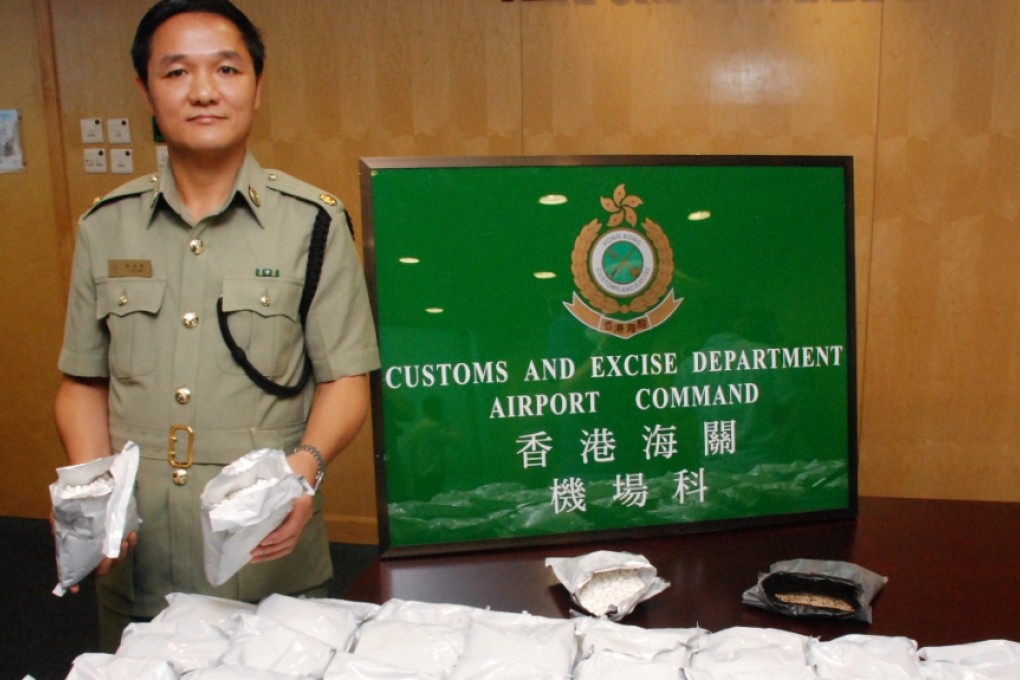Call for more lenient sentences for 'tricked' elderly drug mules intercepted in Hong Kong
Call for law to be reviewed following surge in cases of older people being exploited or tricked into carrying drugs for trafficking syndicates

The increasing use of elderly drug mules by crime syndicates has prompted calls for authorities to reassess Hong Kong's harsh sentencing guidelines.
The law should be updated to take greater account of mitigating circumstances as typically these elderly people are tricked or coerced into cooperation and are not kingpins in the trade, campaigners say.
Following a spate of cases last year, customs officials recently revealed how crime syndicates were now using inheritance scams as a way to trick elderly foreigners - some as old as 82 - into transporting narcotics.
One foreign mule told the Sunday Morning Post he was brought to Hong Kong, all expenses paid, by a group purporting to be handling an inheritance settlement.
He was given documents to lodge with his bank back home and asked to take a suitcase allegedly containing gifts with him. The luggage was later found by customs officers at the airport to contain packages of the illegal stimulant crystal meth.